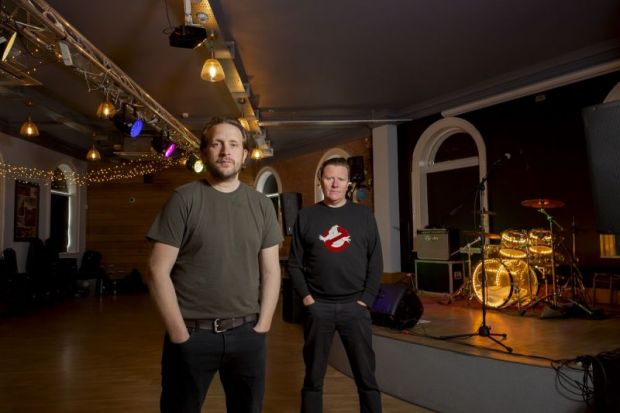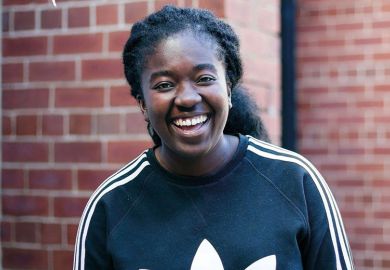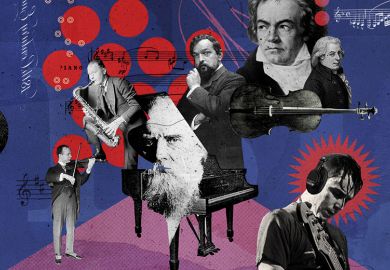The move from indie rock star to university lecturer may not be a traditional career path, but it is one that Barry Hyde, lead vocalist and guitarist of the Futureheads, relishes.
Best known for storming indie hit Decent Days and Nights and a celebrated cover of Kate Bush’s Hounds of Love, the band was a headline act in the noughties indie music scene, not just in the UK but around the globe.
Now Mr Hyde has partnered with the University of Sunderland to set up a bachelor’s degree in modern music industries. Students will be taught in the Birdland Studios above the city’s historic Peacock Pub, which Mr Hyde and his business partner, Dan Donnelly, bought last year.
The concept is “a music degree taught by music industry professionals in a space that is also a living, breathing, grass-roots music venue and recording studio. It’s very unique,” said Mr Hyde.
“There are a lot of very skilled teachers out there who maybe don’t have a great deal of experience [as a working musician]…a really important part of this is having students in a room with someone who has done thousands of gigs, made an album, had a record deal and even created their own label,” he said.
The BA will be run by the Northern Academy of Music Education, set up by Mr Hyde and Mr Donnelly, in partnership with Sunderland. Partnering with the university was crucial, Mr Hyde said, not just to offer students a degree but to provide them with the campus experience: hanging out in the students’ union, using the library and graduating at the Stadium of Light.
“I fell into teaching, essentially, through becoming a student,” he explained. “I did a BA five years ago, then I did my master’s degree, and it was a really powerful part of my personal development.
“Because I was a professional musician by the time I was 19, there’s a lot of things that I didn’t do: I didn’t do a degree; I went on tour. I was living a rock and roll lifestyle, which essentially means you’re a travelling troubadour. We did a thousand gigs, played every music festival and played on the American talk shows.”
Although professional artists do not require qualifications – “when we played Glastonbury, [festival organiser] Michael Eavis wasn’t there checking our diplomas” – Mr Hyde said he believed that if someone has spent three years dedicating themselves to an academic programme, “there can be no doubt about the difference in quality of art that you produce”.
He cannot promise that all his graduates will get a gig at Glastonbury, but Mr Hyde argued that his experience could help them navigate the difficulties of the music industry, especially one that is changing rapidly, and not least because of the devastating impact of the coronavirus pandemic.
“I know, especially being up here in the north-east, it can seem very daunting…but the power of social media means you can make online connections and produce music from your bedrooms. It’s an exciting time,” he said.
Mr Hyde said he himself wants to get back in the studio soon and eventually to earn a PhD. But first “I want to fully establish the music school, get a cohort right the way through it, and the goal is to eventually offer a master’s degree”.
“The north-east is crying out for something like this, and the next generation of musicians are hungry to apply themselves in a serious manner to develop their skills. We hope that we will be the place that they come to.”
Register to continue
Why register?
- Registration is free and only takes a moment
- Once registered, you can read 3 articles a month
- Sign up for our newsletter
Subscribe
Or subscribe for unlimited access to:
- Unlimited access to news, views, insights & reviews
- Digital editions
- Digital access to THE’s university and college rankings analysis
Already registered or a current subscriber?








